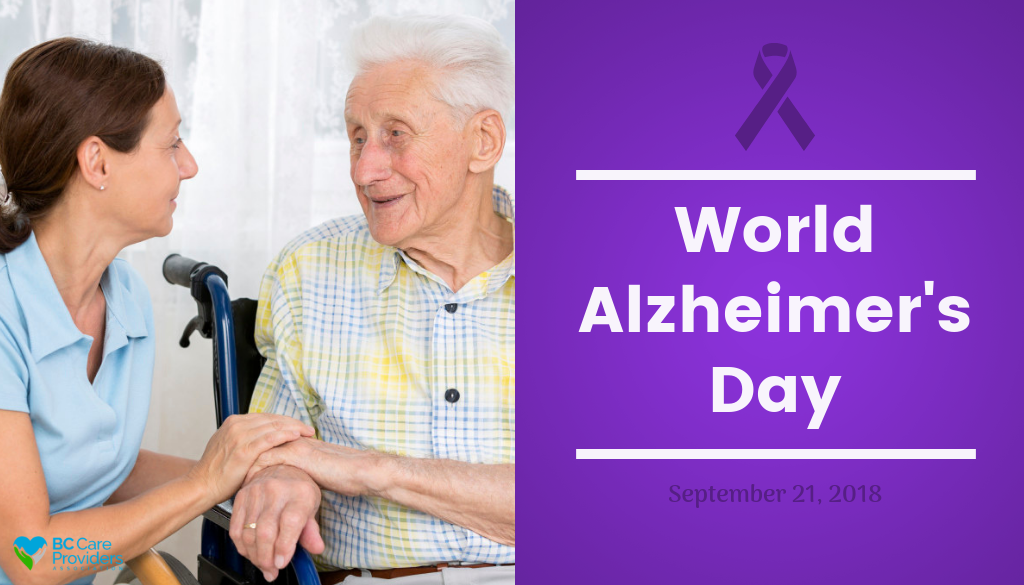By Rebecca Frederick
Today marks World Alzheimer’s Day. Rather than let it pass by us, perhaps we can use this day to make a simple change.
Can we agree to stop using the term Alzheimer’s patient?
First, some background statistics to understand the scale of the disease.
As British Columbians live longer, we are seeing an increase in Alzheimer’s disease and other dementias. Currently there are approximately 70,000 people living with the disease, mostly older adults, but some under the age of 65. As more individuals and families come to be affected, media reports are increasingly focusing on this health challenge.
The coverage is certainly welcome. However, there is a problem with some of the language reporters use.

BC Care Providers Association have joined the dialogue surrounding older adults and appropriate language. We advocated for more intentional language across the continuum of care, including the abandonment of the “F-word” (facilities). At the 2018 conference – dubbed Shift Happens – BCCPA assembled a panel of experts to talk about why words matter. Through this interactive dialogue we challenged providers across the sector to modify our vernacular in order to strive toward more person-centred care.
From large dailies to local papers, many media outlets are taking the time to highlight poignant stories that raise public awareness around dementia. The reports painstakingly detail how a person can continue to live their best life with dementia, or the stresses felt by family caregivers. These articles are quite often inspiring. However, phrases like “Alzheimer’s patient” or “dementia sufferer” simply demean the individuals.
We can do better.
The term Alzheimer’s patient reduces a person so that they are no more than their diagnosis or medical experience. It robs them of their individuality and negates their ability to define their own identity. This is not a new argument, of course. The same case been used for us to move away from other terms like “bi-polar,” “cancer patient,” or “schizophrenic.”
By opting for non-medical phrases like “person living with dementia,” we afford more space for people to define their own identities, and we confirm that a person’s experience in living with a disease like Alzheimer’s disease, is more than purely medical.
Using terms like “Alzheimer’s patient” not only devalues individuals, it also shortchanges the role of the continuing care sector that seeks to move beyond a medical-focused model of care. Many care homes are championing for quality of life, by integrating better programming and working to understand the individual. B.C. care homes do not house “patients” — rather, they are referred to as residents. Likewise, people living with dementia should not be considered as “sufferers,” but as unique individuals with who are learning to relate to their diagnoses.
As we go forward, we encourage members of the media to become important allies in reducing stigma, and strengthening the continuum of care for people living with the disease (see for example, Moira Welsh’s moving piece on caring for people with dementia in the Toronto Star). As a first step, we must assess whether the language we use is person-centred, or if it further marginalizes an already vulnerable population.
This World Alzheimer’s Day let’s use the occasion to commit to moving away from the phrase Alzheimer’s patient.
—
Rebecca Frederick is BCCPA’s Manager, Public Affairs for Assisted Living and Home Care





